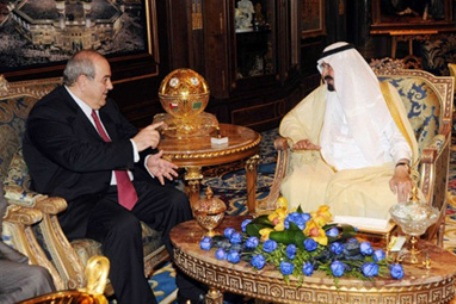Riyadh the Rogue Player in Iraq

By: Javad Mohammadi
After formation of the first democratic government in the Middle East in the wake of the 1979 Islamic Revolution of Iran, Iraq was the second country in the region which adopted a democratic system in the post-Saddam era. But from the very beginning of the establishment of such a fledgling democracy in Iraq, Saudi Arabia has taken a hostile approach toward it.
Since 1979, the most prominent regional strategy of Saudi Arabia has been impeding the growth of political Islam led by Iran. The Islamic Republic on one hand is based on genuine Islamic tenets and historical precedent, and on the other, all of its senior officials, including the supreme leader, are elected by Iranian people. Therefore the Islamic Republic has set a unique example of compatibility and synergy between religion and democracy for other Muslims to follow. However the Saudi government on account of existence of the holy Kaaba in this country and the sanctity of this Arabian land for Muslims is claimant to the leadership of Islamic Ummah. Following the emergence of Islamic Republic and its challenging attitude vis-à-vis retrogressive and fanatic Islam led by the Saudi government, this undeserved leadership has been exposed to danger. That’s why undermining Iran’s clout and popularity in the region, especially in Iraq, is defined as the main regional strategy of Saudi Arabia. In this connection, and as a quote from WikiLeaks, Reuters news agency stated that Saudi Arabia's King Abdullah told U.S. diplomats that by toppling the Iraqi dictator Saddam Hussein, the U.S. had presented Iraq to Iran "on a golden platter”. Elsewhere one Saudi official was also quoted by Reuters as saying that the Saudi government is worried about the departure of American troops because now there is nothing to balance Iranian rule, so things might get worse. All the foregoing evince the Saudis’ all-out support for terrorism in Iraq.
Furthermore there are still some fundamental reasons behind Saudi’s sabotaging policies in Iraq as follows:
1- The independent and uninfluenced approach of Nouri Maleki towards the Riyadh-Washington coalition is a cause of great concern for the Saudi kingdom and the USA. During recent events in the region it was discovered that not only the Iraqi government has never been playing a part in the US preplanned plots, but it has also directed its efforts to the preservation of Iraq’s independence and the interests of the Iraqi nation and the Islamic Ummah. Iraq’s “no” vote for Syria’s suspension from the Arab League and the outspoken opposition of the Iraqi premier to Obama’s call to overthrow Bashar Assad all provides proof of the aforementioned claims.
2- Establishment of a powerful and stable government in Iraq undermines the Saudi role in regional equations. Hence, despite the fact that Iraq has a coastline of 50 km on the Persian Gulf, its membership in the GCC has been consistently opposed by the Saudi kingdom. But on the other hand Saudi Arabia is strongly supporting the membership of Jordan and Morocco in the GCC, while these two countries are not only not located in the Persian Gulf area but Morocco is not even situated in the Middle East!
3- The terror diplomacy of Saudi Arabia in Iraq-- carried out in coordination with the USA-- is a reciprocal deal with the White House. In other words, Saudi Arabia, by destabilizing this country will achieve its own political goals. And on the other hand intensification of insecurity in Iraq, after U.S. troops’ departure from Iraq, would provide a good excuse for a new U.S. military presence in Iraq.
4- Terrorist acts in Iraq that contribute to a deepening of the Sunni-Shiite split would benefit Saudi government. This is because while the Middle East is moving toward establishing democracy and the main public concern is getting rid of dictators, some people would not be able to make a logical decision and their protests would be directed, in part, against Shiite groups and governments as a result of escalation of religious rifts and the resultant emotional atmosphere. Accordingly, anti-Shiite and anti-Iranian sentiments would escalate.
5- Separatist moves and request for autonomy of Sunni-dominated provinces, led by pro-Saudi Al Iraqiya List, would lead to a split and a weakened Iraq. Given the strong opposition of the Iraqi nation to recognition of the Israeli regime and considering the relations between Israel and autonomous Kurdistan, the division of Iraq would favor Israel and would meet Saudi Arabia’s desire to form a weakened and unstable Iraq as well.
* Javad Mohammadi is an international affairs analyst and a regular contributor to Principlist media such as Raja News, Alef and Resalat Daily.

